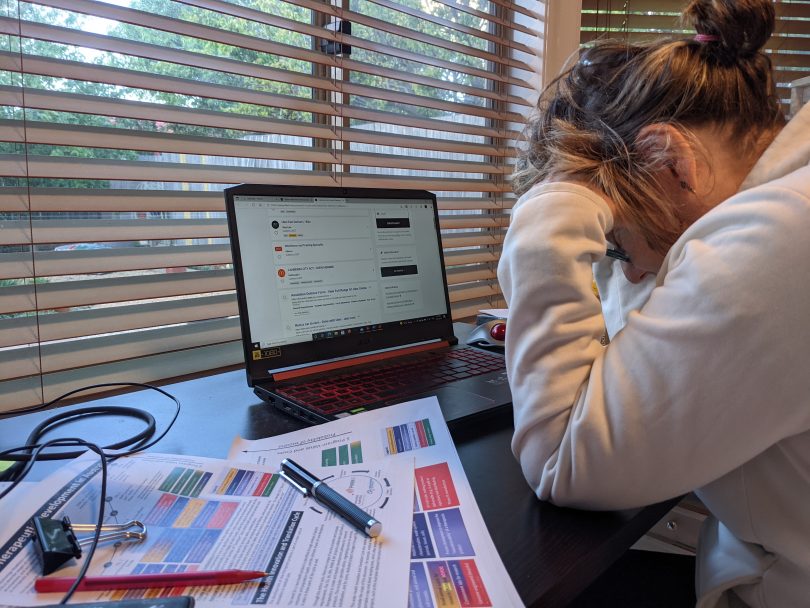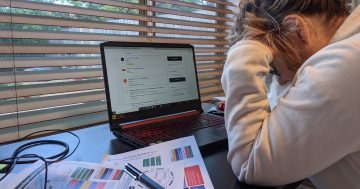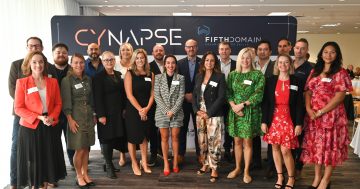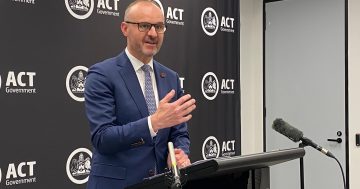
Employment can be a complex issue for people with neurodiversity issues. Photo: Aiden Rothnie.
Finding a job can be difficult at the best of times. But take the anxiety of a job interview and multiply it with confounding social cues and it can be a difficult experience for many neurodiverse job seekers.
Neurodiverse people see the world differently, so not only finding but keeping a job can be difficult for a multitude of reasons. There are commonly held misunderstandings about what it means to be neurodiverse, which creates barriers to employment.
Australian sociologist Judy Singer created the term neurodiversity in the late 1990s.
“It points to the fact that every human has a unique nervous system with a unique combination of abilities and needs,” she said.
Darien Judge, who has autism, has faced difficulties and discrimination finding employment and engaging in a workplace. Darien volunteers as a neurodiversity employment support advocate.
He says there are many limiting factors for neurodiverse people entering or finding work, including workplace culture and perceptions of neurodiversity.
Mr Judge says one challenge is how neurodiverse people interpret social cues, combined with the high-pressure situation of an interview hampering their efforts.
“You end up anxious and uncomfortable because you’re not sure how the interview is going at any point or whether you’re giving the right answer,” Mr Judge said.
Mr Judge works in the IT sector with a background in cyber security in the Australian Public Service. He says it’s the most supportive sector he’s found.
“When it comes to the public service and information technology sectors, it’s actually pretty supportive,” Mr Judge said. “They will make changes and they will make compromises to help you feel comfortable and help you be able to work effectively.”
Listen to learn more about neurodiverse employment challenges.
Support could include manager feedback, changed arrangements to permit work-from-home days, or assistance with sensory issues around noise, light and sound.
But it can be difficult to get these jobs in the first place. There are few support services in the market, and they are hard to find.
“I actually had no idea about any support services for autistic people, even if they are there, it’s really not known about,” he said.
The lack of support for neurodiverse people trying to find work is one of the factors that drove David Smith to establish Employ for Ability, an organisation that works to support both workplaces and individuals.
Founded in 2019, Employ for Ability aimed to educate and train businesses and government departments on the value of hiring neurodivergent employees.
Too few organisations were supporting employment for neurodiverse people, Mr Smith said.
“One of the challenges is that people don’t understand neurodiversity. [They] relate it to a [television] show or an experience.”
Stephanie Carayannis works at Specialisterne, a global organisation working to get more neurodiverse people into workplaces.
Opening in Australia in 2015, Specialisterne aims to shift the culture and mindset of employers and create employment opportunities.
Ms Carayannis said that there are many barriers for neurodiverse people looking for a job.
“The whole job searching process can be quite overwhelming,” she said, “particularly if you don’t know where to look and you’re getting rejection after rejection, and you don’t know why.”
Mr Judge said another struggle is how to respond to prejudice, which can influence perceptions of what neurodiversity is and what tasks the neurodiverse might or might not manage.
“It’s someone saying, ‘Oh, you should be really good at that, you’re autistic’, or ‘oh, I didn’t expect someone who’s autistic to be so good at communication,'” he said. “These things, they don’t sound harmful, but they do have an impact.”
Mr Smith said that many employers are less likely to employ neurodiverse people because of prejudices and hearsay.
“There’s a saying in the autism community: ‘You’ve met one person with autism, you’ve met one person with autism,’ because everyone is different”, he said.
More education and information resources for both neurotypical and neurodiverse people about neurodiversity are needed to overcome such perceptions. It’s why Mr Judge volunteers as a neurodiversity employment support advocate.
He believes people, including neurodiverse people, are not adequately taught about neurodiversity and what it means.
“Parents should have more access to information, and we should normalise the understanding of the neurodiverse in primary school and high school,” he said.
Ms Carayannis said that a lot of education on neurodiversity in years past focused on negative attributes instead of positives or ways in which people are similar.
“A lot of the time, the most common difficulties are ones that everyone faces,” she said.
Aiden Rothnie is a final year journalism student at the University of Canberra and a participant in the digital news project with Region Media.




















